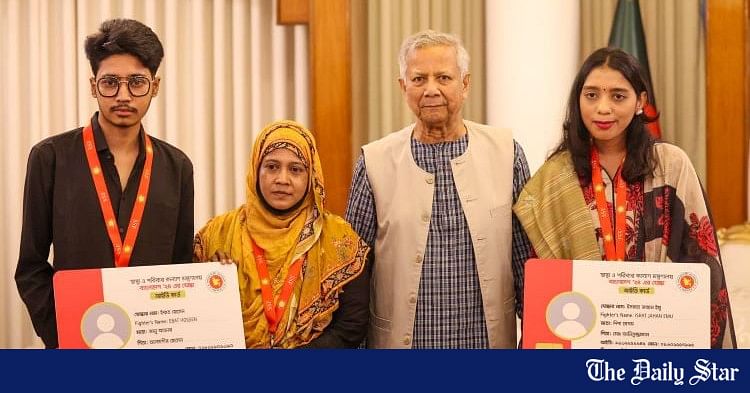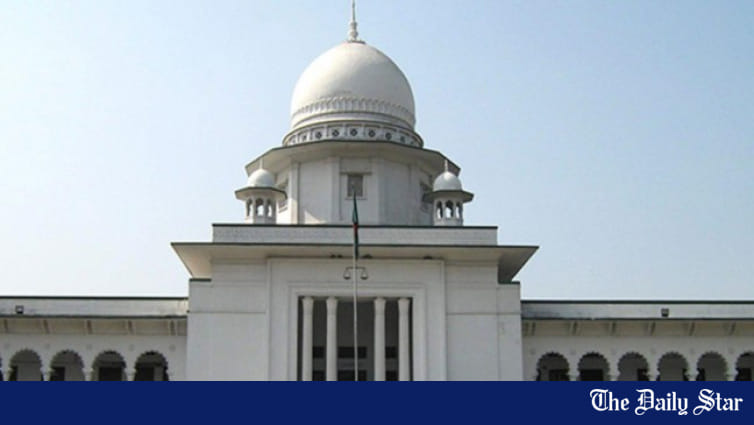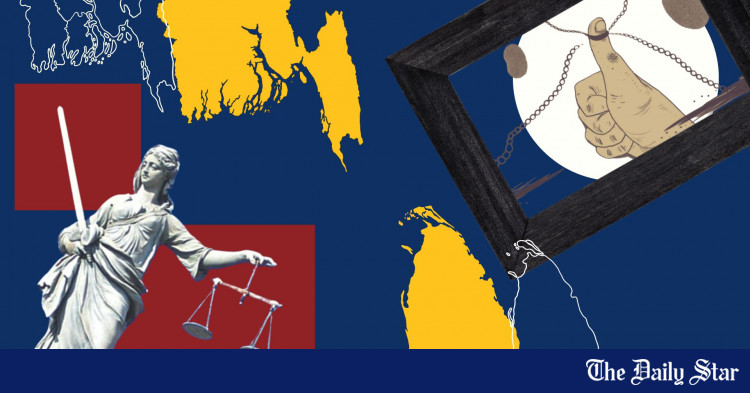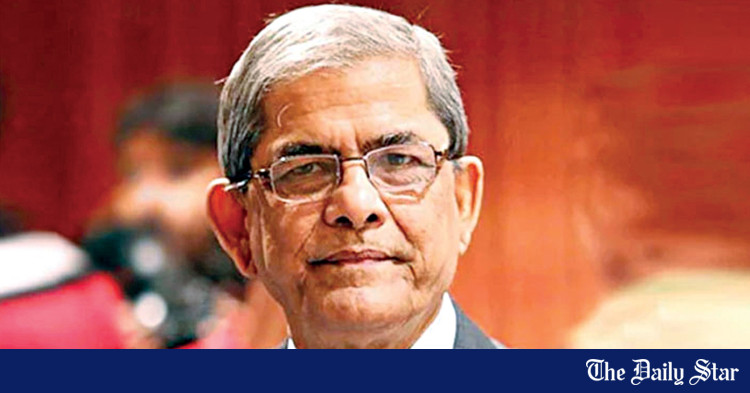Saif
Senior Member
- Messages
- 17,481
- Likes
- 8,438
- Nation

- Residence

- Axis Group


Uprising victims' families financial security state's responsibility: Yunus
Yunus said having this health card means that cardholders will get treatment at any government hospital in the country at any time, be it after a year or two
Uprising victims' families financial security state's responsibility: Yunus

Photo: CA press wing
Chief Adviser Prof Muhammad Yunus today said the ensuring financial security of the families of the martyrs and the injured in the students-people's uprising is the state's responsibility.
"It is the responsibility of the state to ensure medical care for the wounded fighters. We will do that. The government will ensure their financial security," he said while inaugurating the distribution of health cards for them at the State Guest House Jamuna.
Dr Yunus said having this health card means that cardholders will get treatment at any government hospital in the country at any time, be it after a year or two. "This card will always be there."
In addition to this, he said, they have to think about the mental and social rehabilitation of the fighters injured in July.
"This needs to be given importance. Appropriate initiatives need to be taken so that these people can live happily and be established in society," said the Chief Adviser.
"In addition to healing physically through treatment, attention must also be paid to their mental health," Prof Yunus said.
The Ministry of Health said that health cards will be distributed to specific districts every week among the fighters injured in the July uprising.
Health Adviser Nurjahan Begum, Special Assistant to the Chief Advisor at the Ministry of Health and Family Welfare Prof Dr Md Sayedur Rahman, Information Adviser Nahid Islam, Health Secretary Md Sayedur Rahman and July Shaheed Smriti Foundation Chief Executive Mir Mahbubur Rahman Snigdha and Secretary Sarjis Alam were, among others, present.
Photo: CA press wing
Chief Adviser Prof Muhammad Yunus today said the ensuring financial security of the families of the martyrs and the injured in the students-people's uprising is the state's responsibility.
"It is the responsibility of the state to ensure medical care for the wounded fighters. We will do that. The government will ensure their financial security," he said while inaugurating the distribution of health cards for them at the State Guest House Jamuna.
Dr Yunus said having this health card means that cardholders will get treatment at any government hospital in the country at any time, be it after a year or two. "This card will always be there."
In addition to this, he said, they have to think about the mental and social rehabilitation of the fighters injured in July.
"This needs to be given importance. Appropriate initiatives need to be taken so that these people can live happily and be established in society," said the Chief Adviser.
"In addition to healing physically through treatment, attention must also be paid to their mental health," Prof Yunus said.
The Ministry of Health said that health cards will be distributed to specific districts every week among the fighters injured in the July uprising.
Health Adviser Nurjahan Begum, Special Assistant to the Chief Advisor at the Ministry of Health and Family Welfare Prof Dr Md Sayedur Rahman, Information Adviser Nahid Islam, Health Secretary Md Sayedur Rahman and July Shaheed Smriti Foundation Chief Executive Mir Mahbubur Rahman Snigdha and Secretary Sarjis Alam were, among others, present.








